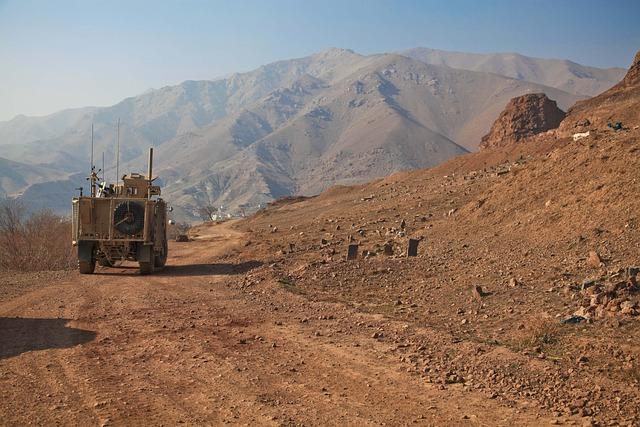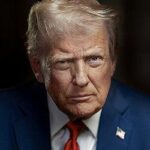Understanding the Presidential Powers for Military Deployment in U.S. Cities
As social justice issues, law enforcement practices, and civil unrest continue to create tension across the United States, the idea of deploying military forces to urban areas has sparked significant debate among politicians and citizens alike. Former President Donald Trump has notably expressed a readiness to utilize military power in domestic situations, prompting essential inquiries into the legal and constitutional frameworks that govern such actions. This article explores the specific powers available to the President regarding military deployment on American soil, analyzing historical precedents, statutory constraints, and potential impacts on civil liberties and public safety. In a nation facing deep divisions, grasping these powers is vital for understanding how to balance order with citizens’ rights.
Presidential Powers in Times of Domestic Crisis
The authority granted to a president for deploying military forces within U.S. borders during times of crisis primarily derives from two key pieces of legislation: the Insurrection Act and the Posse Comitatus Act. The Insurrection Act permits federal troops’ deployment when local law enforcement is overwhelmed or incapable of restoring order. This statute provides crucial context for understanding when military intervention may occur during civil disturbances while also outlining limitations on such actions. Conversely, established by Congress in 1878, the Posse Comitatus Act restricts federal military personnel’s involvement in domestic law enforcement activities—emphasizing a necessary separation between civilian authorities and military power within democratic governance.
Historical examples significantly influence contemporary discussions surrounding this topic. Presidents have invoked these powers at various critical junctures throughout history—such as during pivotal moments like natural disasters or significant social movements like those advocating for civil rights. Several factors can affect a president’s decision-making process regarding activating military forces:
- Crisis Severity: The scale and consequences of unrest or disaster.
- Local Law Enforcement Capability: The ability of local police agencies to handle escalating situations.
- The Political Environment: Public sentiment and potential political fallout.
Legal Parameters Surrounding Military Intervention in Urban Areas
The legal landscape governing military force deployment within U.S cities encompasses several important statutes alongside constitutional provisions. Central among them is the Insurrection Act enacted in 1807; it empowers presidents to deploy armed forces against domestic violence or insurrections that obstruct state or federal laws’ enforcement efforts. Historically invoked under various circumstances where local authorities could not maintain peace, this act remains pivotal today as it outlines presidential authority amidst crises.
Additively relevant is the Posse Comitatus Act which generally prohibits using federal troops for domestic policing tasks—creating an intricate legal framework that must be navigated carefully by any administration considering intervention measures.
The interpretation of these laws has evolved over time due largely to recent events shaping public discourse around them; experts stress recognizing both state sovereignty and local governance roles before justifying any federal action against unrest or violence incidents occurring at community levels. Furthermore, any proposed use of force must adhere strictly to principles ensuring due process while respecting individual freedoms—a combination creating an intricate legal environment where presidential powers are not absolute but necessitate justification along with collaboration from state officials whenever possible.
Military Deployment: Navigating Security Needs vs Civil Liberties
The presence of armed forces within American cities raises profound concerns about maintaining equilibrium between safeguarding public safety while upholding individual freedoms.
While some advocate that deploying troops can restore order amid crises effectively; others caution against potential overreach leading towards abuses associated with excessive governmental control.
Armed personnel stationed amongst civilians may foster fear rather than security—especially impacting marginalized communities disproportionately affected by such measures.
It becomes imperative then—to acknowledge how militarized responses influence daily lives emphasizing oversight mechanisms alongside clear regulations governing deployments effectively!
A historical examination reveals patterns indicating disproportionate effects stemming from past interventions targeting specific demographics adversely affecting community trust towards both law enforcement agencies & government institutions overall! To address these complexities proactively requires implementing strategies promoting community engagement initiatives ensuring transparency throughout decision-making processes fostering constructive dialogues bridging gaps between civilian populations & their respective leaders operating militarily! Upholding civil protections whilst addressing legitimate security concerns remains paramount toward nurturing harmonious relationships existing between civilians & their armed counterparts!
In Summary
In summary, navigating through complex legal frameworks surrounding presidential authority concerning troop deployments domestically reveals intricacies rooted deeply within historical contexts intertwined with constitutional mandates! As discussed herein—the Insurrection Act coupled alongside Posse Comitatus shapes parameters defining extent/nature involving militarized engagements amidst societal challenges faced today! Although providing mechanisms addressing severe scenarios—they simultaneously invoke pressing questions related directly towards safeguarding personal liberties/federalism dynamics reflecting appropriate balances required functioning democratically! As conversations evolve around policing/military interactions—it becomes increasingly vital citizens remain informed/engaged ensuring cautious approaches taken whenever contemplating utilizing forceful means under civilian contexts prioritizing transparency above all else!









